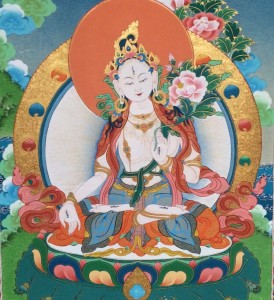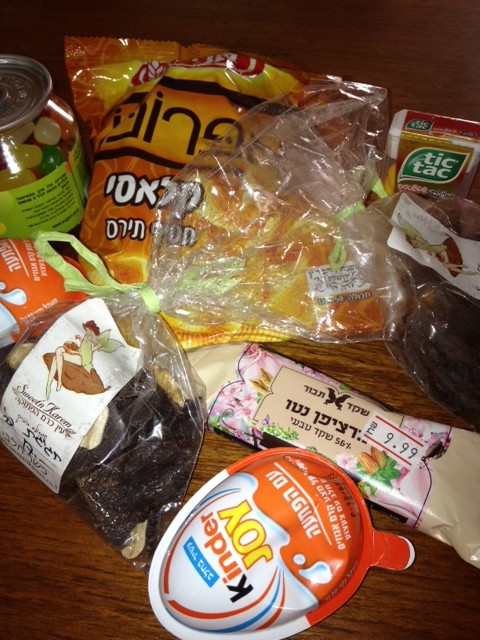Rumbling down Sir Francis Drake Boulevard, cow ranches on either side, the sky is heavy with fog above us. In the car, some of us concentrate on surviving the nauseating drive, breathing in and out, staring ahead. David, both hands on the wheel at all times, foot perhaps too attached to the accelerator, recites J.R.R. Tolkien poetry:
“All that is gold does not glitter,
Not all those who wander are lost;
The old that is strong does not wither,
Deep roots are not reached by the frost.
From the ashes a fire shall be woken,
A light from the shadows shall spring;
Renewed shall be the blade that was broken,
The crownless again shall be king.”
We discuss which character of Lord of the Rings is closest to our hearts. I choose Sam, the hobbit, for his honesty, loyalty, bravery, and trustworthiness. He is not the hero, and yet the hero depends on him utterly for his success. Tonya interjects, pointing out that Sam is tempted not to return the ring to Frodo after he rescues him from the spider. I counter by saying that actually, though the ring tries to gain control over Sam, and arguably perhaps succeeds momentarily, Sam proves stronger and does, in fact, return the ring (unlike Gollum, if we want to compare, who kills his brother for the ring, Sam’s love belongs first and foremost to Frodo, and no ring can breach his loyal heart).
David, perhaps predictably, chooses the elf, Legolas. I poke fun at his choice, saying the elves don’t really and fully participate in the adventure. Higher beings, immortal, they seem somehow above any danger encountered by mere humans and hobbits. David’s reddish hair glitters and his eyes shine as he speaks of Legolas, his honor and courage. The elf from the book, he emphasizes, not the movie. David mentions Gandalf, too, as a possible choice, because of his humility. Gandalf’s hand is in every instance where help is needed, and yet he wanders the countryside humble and unobtrusive. You’d never know he had done anything to change history. I agree with that choice. I love Gandalf. I’d be Gandalf in a heartbeat if I could.
Tonya and Lesley, sitting in the back, choose no character for themselves. Perhaps they have not dreamed of living in Middle Earth the way I have, the way I sense David had. Perhaps their hearts are inextricably tied to some other book. Or perhaps David and I dominate the conversation too much with our Tolkien passion, our need to dive into the world of the book.
*********
I look out the window as cow ranches turn into marshy yellowing grass. Drakes Estero stretches to our right. I know somewhere there is water, fresh mixing with salt, but from where I’m sitting my view is mostly blocked by the bushes that frame the road. I search for wildlife, and suddenly, far in the distance, I see a tan shape of what looks to be a cat. I yelp intelligibly. David breaks the car at the side of the road, and we all run out, holding onto our binoculars (in my case, a monocular). I jog breathlessly after David and Lesley, both of whom, far ahead, seem much more used to running (or else, just younger). Tonya chooses to stay near the car. If it’s a mountain lion, perhaps she’s being wiser than us, but at the moment, it doesn’t matter that I may be running toward a carnivore that could kill me. My heart races with the joy of discovery, of something new, with the joy of being alive.
The estero lies before us, green and yellow and grey, punctuated by stretches of pristine, transparent water, and there, right in front of a little boulder mound, is the cat. I jerk the monocular to my eye and squint through. Tan indeed. Muscular. A cat for sure. But what kind of cat?
“I don’t think this is a bobcat,” David says.
“It’s a mountain lion,” I say with confidence, because I want it to be so. In the eye of the monocular, the cat walks regally up the boulders. Its muscles ripple. I have never seen any animal look quite this powerful, quite this strong. Nothing exists but its shape in my monocular. No estero, no birds, no grass. Just me and the cat. I wonder if it’s looking back. The monocular is not strong enough that I can see a face. Just a shape. Just the blatant power of a wild, living body.
The van with the rest of the class turns the corner. David runs to tell them to come see the cat, just as it walks around the boulders and disappears behind the grass. “It was small, but I think it was a mountain lion,” David says. I hear Chris say in reply that it was a bobcat. I gnash my teeth in frustration. It was a mountain lion. I know it was. I saw, as clear as day, the long tail, the tan, sleek body. This was no kitten. This was it, the king of the beasts, the top predator.
“A bobcat,” Chris says later in class.
“A mountain lion,” I insist quietly to myself, wondering why I feel so irritated. “I know what I saw.” But (fearing what?) I don’t speak up. The mountain lion, now a part of the estero and the park and the mythological journeys of the Barf Car, remains, for the time being, singularly mine.
*********
David likes raptors, and not just any raptors. I’d guess his favorite is the harrier, He never says it in so many words, but I can tell. Every time we see a raptor in the sky, David pulls the car over. “It’s a harrier,” he says with bated breath, hands locked around his binoculars, eyes peering through with an intensity no plastic instrument can hide. “I can see the white band on the back.”
“I don’t know,” Lesley says. Her eyes, too, are glued to the binoculars. “The tail looks very red to me.”
A pause, followed by a slight sigh, “Oh, it’s a red-tailed hawk,” David admits. Then, “No, it’s a harrier. Look at the white band. Oh, no, it’s a red-tailed hawk.”
The hawk flies beside us over the golden hills of the coast, its wings spread out as it catches the wind. I watch it, entranced. Ah, to fly like a bird. To swoop down close to the waves. To dive through the air down the cliffs, wings tight at my side. To soar above dolphins as they slice through the waves. Ah, to fly like a bird. Like a harrier. Or a falcon. Or a red-tailed hawk. Even a sparrow would be fine.
“Now, that’s a harrier,” David says and pulls over the car again. “Look at the white band.”
*********
I must be feeling comfortable with David, Tonya and Lesley, because here I am singing to them a Hebrew song. David’s entranced. He’s a musician, but I can’t tell if he’s excited because he’s hearing a new song in a different language or because he actually likes it. The song is an Israeli rendition of a poem, “A Walk in Caesarea.” The poet, Hannah Szenes, was a young woman on the brink of volunteering to be the first woman paratrooper to Nazi-held Hungary. The poem can be translated like this:
“My God, My God,
May it never end,
The sand and the sea,
The rustle of water,
Lightning in the sky,
The prayer of Man.”
“Can you teach me how to sing it?” David asks.
In Israel, “A Walk in Caesarea” is often sung as part of Holocaust Remembrance Day ceremonies and has become, for many people, a song of sorrow about a lost life. Hannah Szenes was captured by the Nazis, tortured, and eventually executed. She was twenty three years old when she died. Despite that, to me her poem is a symbol of hope and love. It reminds me that humanity deserves to be prayed for. Sometimes, as I look at the trash which we humans carelessly throw out, at the toxins we thoughtlessly pour into our rivers, and at other damage which we believe our right to perpetrate upon the earth, it is hard for me to remember that everyone is worthy of prayer and love, even us humans. Hannah Szenes’ poem does not separate lightning, sea, sand and man. Standing on the beach in Caesarea and watching the Mediterrenean’s waves calmly wash upon the sand, she puts her faith in the power of regeneration, in life itself. She will parachute into Nazi-held Hungary to save other people precisely because she sees the interconnectedness of every grain of sand, every human soul, every drop of water.
I lean my head back against the Barf Car’s seat and think of Hannah Szenes as she stands, so many years ago, not in front of the firing squad but on the beach. I think of Hannah writing her poem in the tranquility of the sand and the sea, of the Roman archaeological ruins in the background. The Barf Car rumbles on back toward the Lifeboat Station. Harriers and red-tailed hawks fly by and owls hoot. Baby peregrine falcons balance on cliff tops as elephant seals and sea lions roar in the water below. Somewhere, a meteor rockets through the sky, and ahead, at our destination, our cook, Yaella, fills the Lifeboat Station with the good smells of food and love. For this moment in time, all falls into place as planned by the Great God in the Sky. Later all might be chaos again. For now, here is life and love.
Watch Ofra Haza, an Israeli singer, singing the song “A Walk in Caesarea.”



 as on its way, long years in a maximum security federal prison, and perhaps — for who can tell how serious lying to Customs really is — the electric chair.
as on its way, long years in a maximum security federal prison, and perhaps — for who can tell how serious lying to Customs really is — the electric chair.
